Unraveling the Enigma of Caligula: A Complex Portrait of Rome's Most Infamous Emperor
Introduction: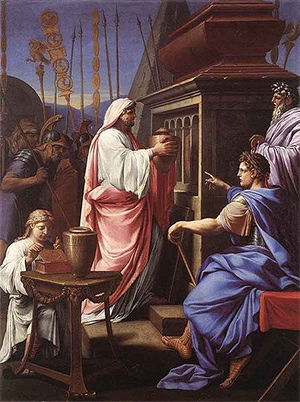
Gaius Julius Caesar Augustus Germanicus, commonly known as Caligula, is perhaps one of the most notorious figures in the annals of Roman history. His reign, which lasted a mere four years from AD 37 to AD 41, was marked by extravagance, cruelty, and a series of bizarre actions that have intrigued historians for centuries. Often depicted as a mad tyrant in popular culture, Caligula's life and rule defy simple categorization. In this article, we will delve into the complexities of Caligula's persona, exploring the historical context of his reign, the various interpretations of his actions, and the enduring legacy he left on the Roman Empire.
The Early Years:
Caligula was born on August 31, AD 12, in Antium (modern-day Anzio, Italy), the third son of the popular Roman general Germanicus and Agrippina the Elder, a granddaughter of Emperor Augustus. His childhood was spent amidst the military camps of the Roman legions, earning him the nickname "Caligula," meaning "little boot," due to the miniature soldier's uniform he wore as a child.
Caligula's formative years were marked by tragedy and political intrigue. After the death of his father, Germanicus, under suspicious circumstances in AD 19, Caligula's family fell out of favor with the emperor, Tiberius. His mother and brothers were exiled, and Caligula himself was sent to live with his great-grandmother, Livia, in Capri, where Tiberius kept a luxurious villa.
It is during his time in Capri that some historians speculate Caligula may have been exposed to the darker aspects of Roman politics and power. The atmosphere of intrigue and paranoia cultivated by Tiberius on the island may have influenced Caligula's later behavior as emperor.
The Reign of Caligula: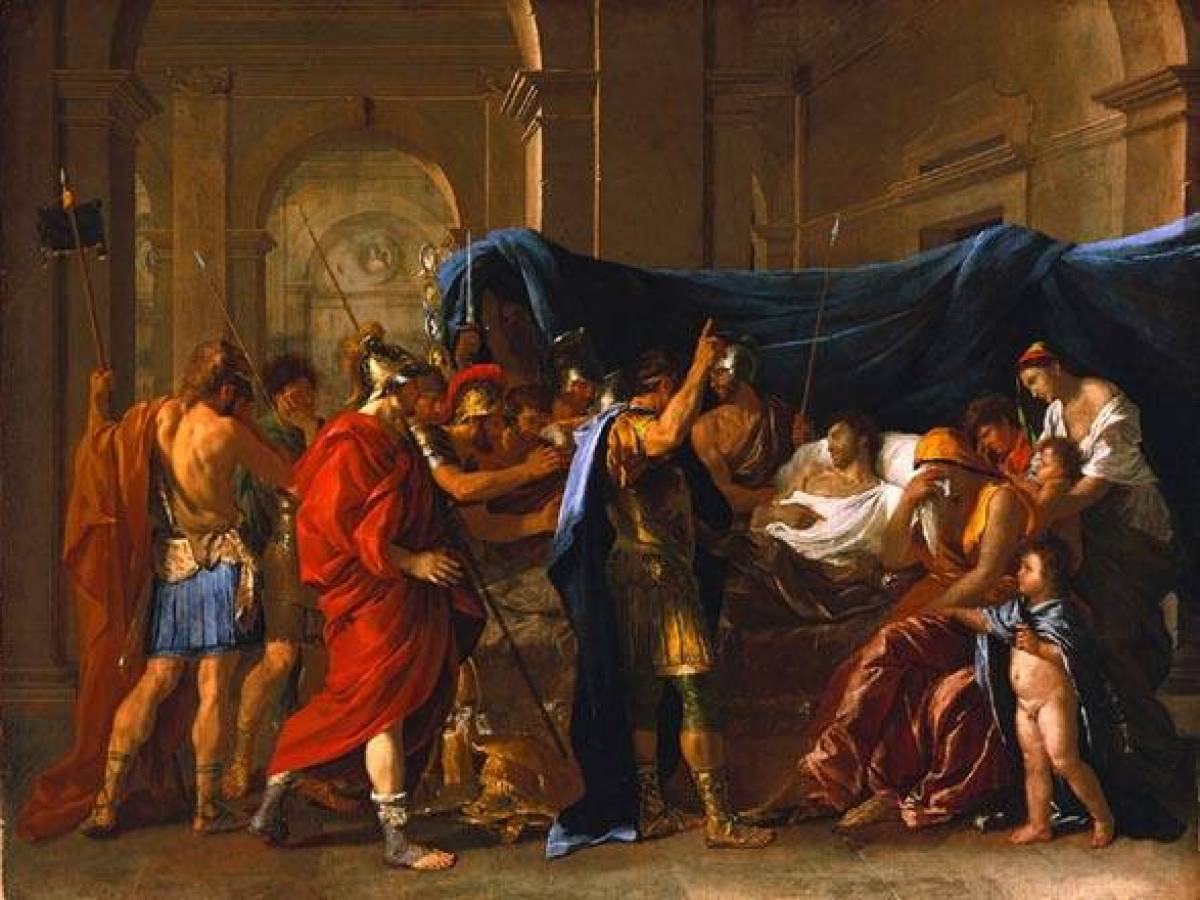
Upon the death of Tiberius in AD 37, Caligula ascended to the imperial throne at the age of 25. Initially, his reign was greeted with optimism and hope, as many saw him as a youthful and energetic leader who would bring about a new era of prosperity and stability for the empire. However, it did not take long for Caligula's true character to reveal itself.
One of Caligula's earliest acts as emperor was to lavish the Roman populace with extravagant games, festivals, and public spectacles, all funded by the imperial treasury. While initially popular, these displays of largesse soon became excessive and financially unsustainable, leading to accusations of wastefulness and mismanagement.
Caligula's rule was also marked by a series of political purges and executions, as he sought to eliminate potential rivals and consolidate his power. Among his victims were members of the nobility, the Senate, and even members of his own family, including his cousin and adopted son, Tiberius Gemellus, whom Caligula had executed on charges of treason.
Perhaps the most infamous aspect of Caligula's reign was his alleged descent into madness and depravity. According to ancient sources, Caligula exhibited increasingly erratic behavior as his reign progressed, including claims of incest with his sisters, a megalomaniacal belief in his own divinity, and a fondness for sadistic acts of cruelty.
One of the most enduring tales of Caligula's excesses is his purported appointment of his favorite horse, Incitatus, as a consul of Rome. While this story is likely apocryphal, it speaks to the widespread perception of Caligula as a capricious and unpredictable ruler.
The Assassination of Caligula: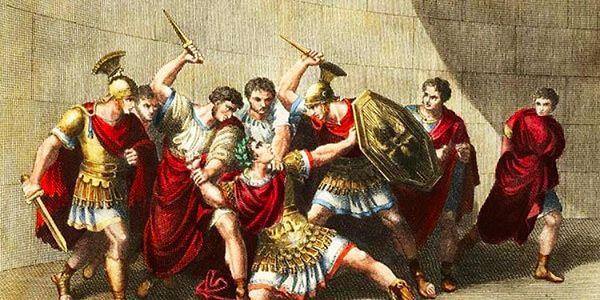
In January of AD 41, Caligula's reign came to a violent end when he was assassinated by members of the Praetorian Guard, the elite soldiers tasked with protecting the emperor. The exact motivations behind Caligula's assassination are still a matter of debate among historians.
Some argue that Caligula's increasingly tyrannical behavior and extravagant spending had alienated powerful factions within the Roman elite, leading to a conspiracy to remove him from power. Others suggest that Caligula's mental instability had reached such a point that his assassination was seen as a necessary act to preserve the stability of the empire.
Whatever the reasons, Caligula's death plunged Rome into a period of uncertainty and chaos, as various factions vied for control of the imperial throne. In the end, it was Caligula's uncle, Claudius, who emerged victorious, becoming the next emperor of Rome.
Legacy and Historical Interpretations: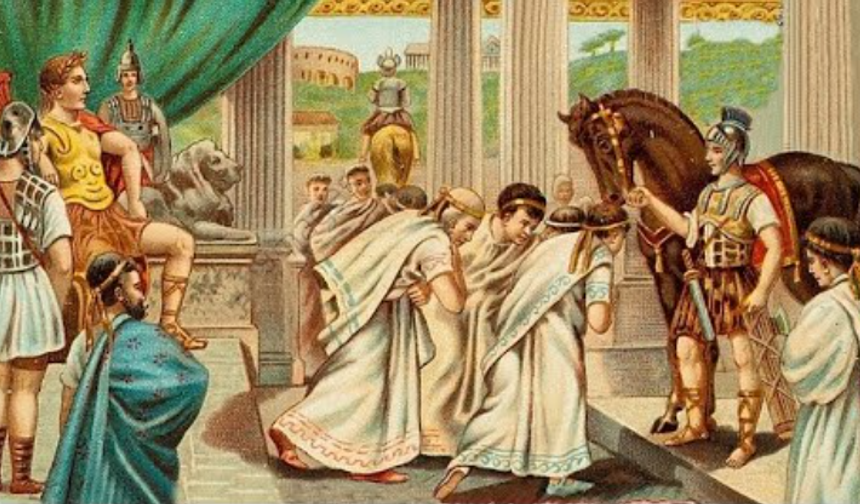
The reign of Caligula has fascinated historians for centuries, inspiring countless works of literature, art, and scholarship. However, his legacy remains a subject of controversy and debate.
On one hand, Caligula is often portrayed as a depraved and tyrannical ruler, whose reign was marked by cruelty, excess, and megalomania. This interpretation of Caligula as a mad tyrant has been perpetuated by ancient historians such as Suetonius and Cassius Dio, whose accounts of Caligula's reign are filled with lurid tales of his atrocities.
On the other hand, some modern historians have sought to rehabilitate Caligula's image, arguing that many of the more outlandish stories about his reign were exaggerated or fabricated by later writers with their own political agendas. Instead, they portray Caligula as a complex and multifaceted figure, whose actions were shaped by the unique challenges and pressures of ruling the Roman Empire.
The Enduring Mysteries of Caligula: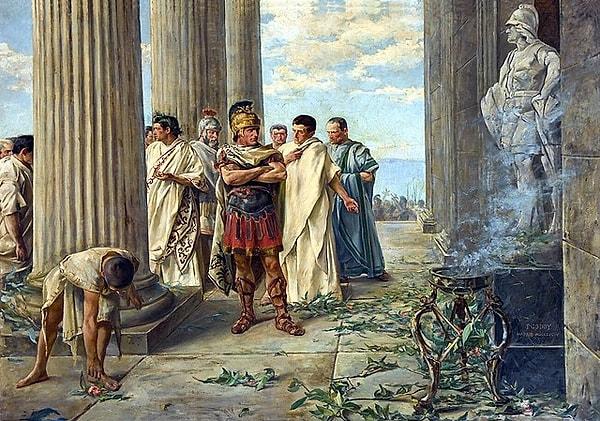
Despite centuries of scholarly inquiry, many mysteries surrounding Caligula's life and reign persist, adding to his allure as one of history's most enigmatic figures.
One of the most puzzling aspects of Caligula's reign is the question of his mental state. Ancient sources describe him as exhibiting signs of insanity, including irrational behavior and delusions of grandeur. However, modern historians debate the accuracy of these accounts, with some suggesting that Caligula's actions may have been calculated political maneuvers rather than symptoms of mental illness.
The extent of Caligula's power and authority is another area of uncertainty. While he held the title of emperor, his rule was not absolute, and he was subject to the constraints of Roman law and tradition. Some historians argue that Caligula's actions were driven by a desire to assert his authority and break free from the limitations imposed by his predecessors, while others see his reign as a cautionary tale about the dangers of unchecked power. The role of Caligula's upbringing and early experiences in shaping his personality and behavior is also a subject of debate. Raised in an environment of privilege and intrigue, Caligula may have learned from an early age that power was something to be seized and wielded ruthlessly. Alternatively, his tumultuous childhood and family history of political persecution may have left him emotionally scarred and psychologically unstable.
The role of Caligula's upbringing and early experiences in shaping his personality and behavior is also a subject of debate. Raised in an environment of privilege and intrigue, Caligula may have learned from an early age that power was something to be seized and wielded ruthlessly. Alternatively, his tumultuous childhood and family history of political persecution may have left him emotionally scarred and psychologically unstable.
Finally, the question of Caligula's legacy continues to spark controversy among historians and scholars. While he is often remembered as a tyrant and a madman, some argue that Caligula's reign had a lasting impact on the development of the Roman Empire, paving the way for the autocratic rule of later emperors such as Nero and Domitian. Others see him as a cautionary tale about the dangers of absolute power and the importance of democratic institutions in preserving liberty and stability.
Conclusion:
In the centuries since his death, Caligula has remained a source of fascination and intrigue for historians, scholars, and enthusiasts of ancient history alike. His life and reign defy simple categorization, encompassing elements of cruelty, excess, and madness, as well as moments of political cunning and ambition.
While the truth about Caligula's reign may never be fully known, the enduring legacy of this enigmatic emperor serves as a reminder of the complexities of human nature and the fragility of power. By studying the historical context of his reign, the various interpretations of his actions, and the enduring mysteries that surround his life, we can gain a deeper understanding of the Roman Empire and the individuals who shaped its destiny.































![[ℕ𝕖𝕧𝕖𝕣] 𝕊𝕖𝕝𝕝 𝕐𝕠𝕦𝕣 𝔹𝕚𝕥𝕔𝕠𝕚𝕟 - And Now What.... Pray To The God Of Hopium?](https://cdn.bulbapp.io/frontend/images/79e7827b-c644-4853-b048-a9601a8a8da7/1)



















